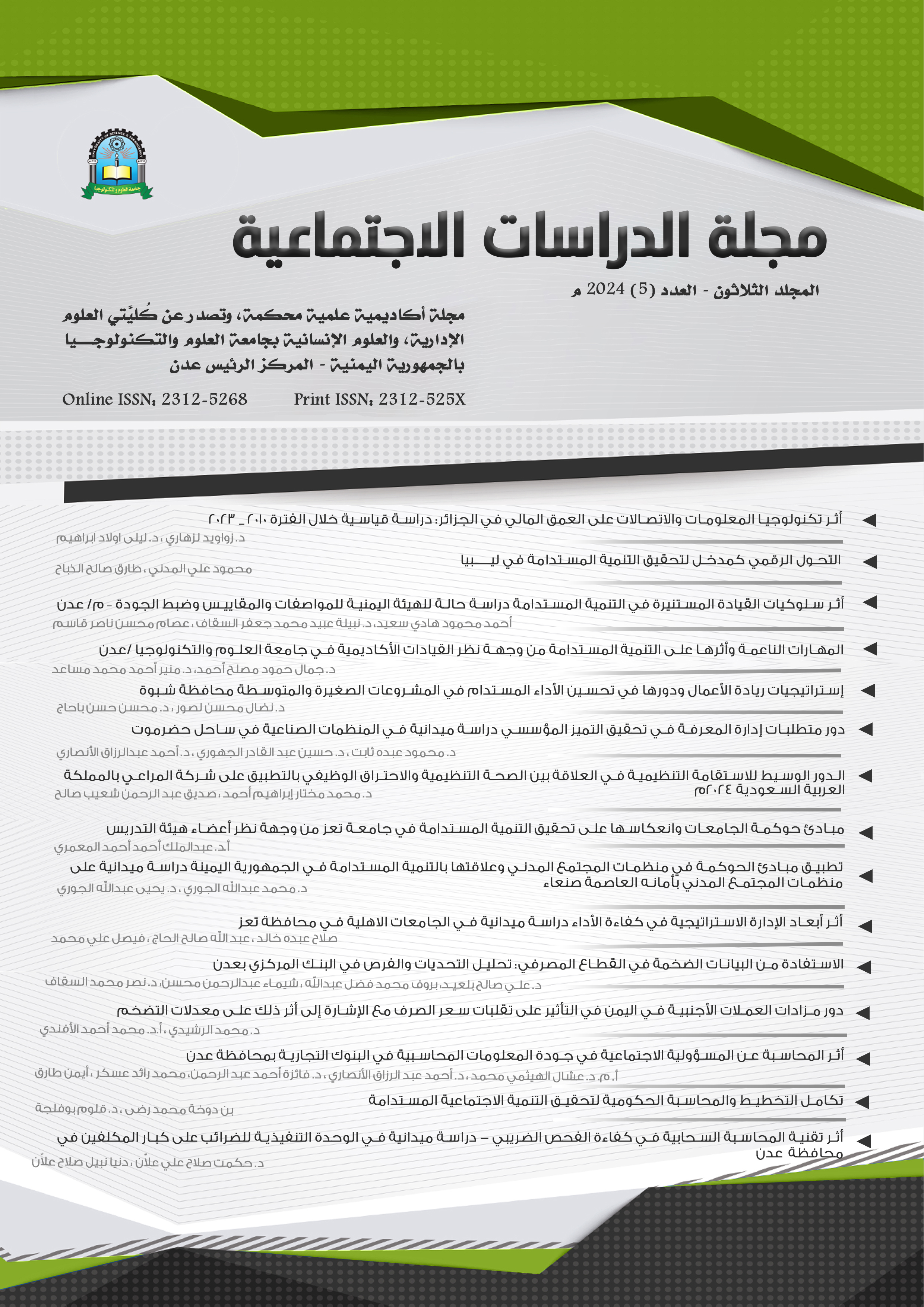Principles of University Governance and Their Reflects on Achieving Sustainable Development at Taiz University from The Academic Members Perspective
##plugins.themes.bootstrap3.article.main##
Abstract
This study aimed to identify the level of application of university governance principles (strategic orientation, independence, management orientation, accountability, participation, transparency, and control mechanisms) at Taiz University, the level of its achievement of sustainable development, and to verify the extent to which the application of university governance principles at Taiz University reflects the university’s achievement of sustainable development. To achieve that, the descriptive analytical approach and an electronic questionnaire were used to collect data from a purposeful sample of expert categories and specialists in the study’s subject and variables, consisting of (36) academic members, all of whom were subjected to statistical analysis using the (SPSS) program to descriptive analysis of the variables and dimensions of the study and using the (SEM-PLS) program to evaluate the study model and test the study hypothesis. The results of the study showed that there is a weak level of application of university governance principles at Taiz University and also its achievement of sustainable development, and there is a strong statistically significant effect of university governance principles on Taiz University’s achievement of sustainable development from the study sample’s opinion.
##plugins.themes.bootstrap3.article.details##
University Governance Principles - Sustainable Development - Independence - Transparency - Control Mechanisms., Control Mechanisms, University Governance Principles, Sustainable Development, Independence, Transparency

This work is licensed under a Creative Commons Attribution 4.0 International License.
JSS publishes Open Access articles under the Creative Commons Attribution (CC BY) license. If author(s) submit their article for consideration by JSS, they agree to have the CC BY license applied to their work, which means that it may be reused in any form provided that the author (s) and the journal are properly cited. Under this license, author(s) also preserve the right of reusing the content of their article provided that they cite the JSS.








